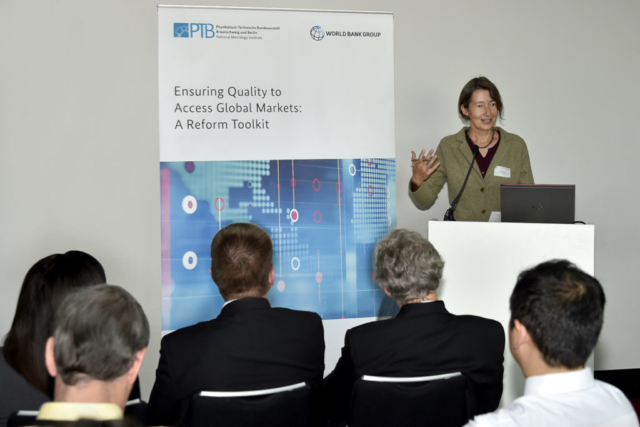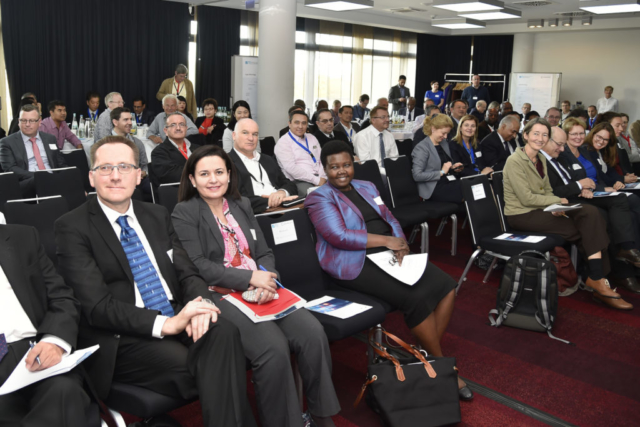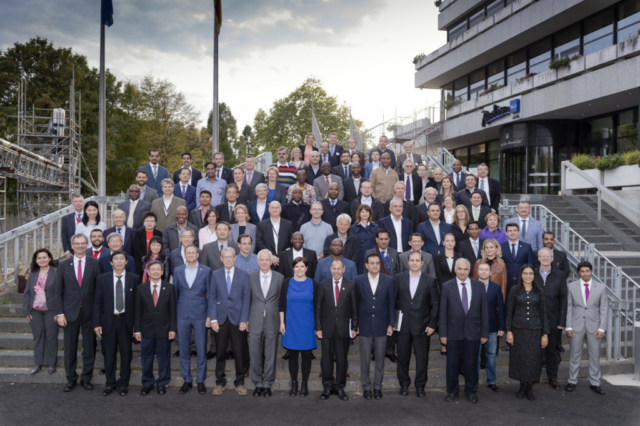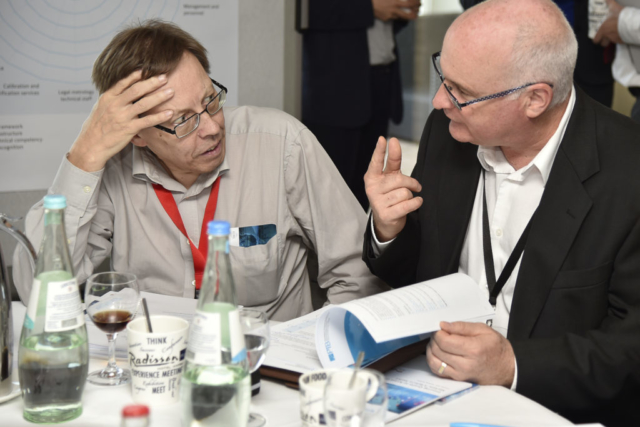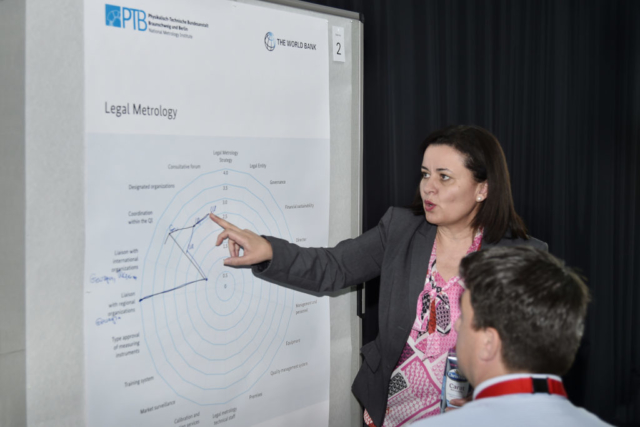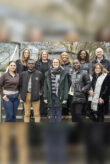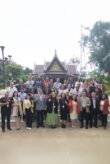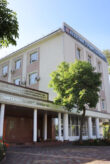They came from places as far away as Angola and Bosnia, from Canada and Vietnam – 170 metrologists from 70 countries met in Hamburg on 9-12 October at the invitation of the Physikalisch-Technische Bundesanstalt (PTB) for the annual meeting of the International Organization of Legal Metrology (OIML Their goal was to discuss the further steps toward harmonizing the requirements and test specifications for a number of important measuring instrument categories, to get new projects off the ground and to strengthen the collaboration with international partner organizations like BIPM, IEC, ILAC, IAF and ISO. Although it appears to be quite bureaucratic at first, it is actually something crucial for everyday life: A functional quality infrastructure, complete with reliable measurement technology, provides the basis for free, fair and safe trade, reliable healthcare, environmental protection and the development of renewable energies.
Honorary Professor Dr. Roman Schwartz, President of the International Committee of Legal Metrology (CIML) and Vice President of PTB, had invited guests to this year’s conference. “Hamburg was the ideal location for this meeting,” said Dr. Schwartz.“With a visit to the Hamburg verification office, which included descriptive presentations of the verification of taximeters, fuel pumps, exhaust meters and mineral oil storage tanks at Hamburg’s harbour and at the aeroplane manufacturer Airbus, the participants were able to gain a lively impression of the economic significance of the use of metrology and verification in Germany.”
OIML also supports countries whose metrological infrastructure is still under construction, in order to incorporate them into the global network of legal metrology. Above Above all, these countries – briefly called CEEMS countries (Countries and Economies with Emerging Metrology Systems) – were the target group of our seminar on the topic of “Quality Infrastructure”, which was co-hosted by PTB and the World Bank Group on 8 October for the OIML participants. Eighty-eight participants from 48 countries and 17 participants from separate institutions attended the seminar “Ensuring Quality to Access Markets: A Reform Toolkit”.
During the workshop, our new Quality Infrastructure (QI) Reform Toolkit was presented. Using the toolkits questionnaire, the quality of the metrological infrastructure of a country can be estimated and also the further necessary development steps can be prepared. The lively practical test of the toolkit has demonstrated that it passed its baptism of fire with distinction. Andy Henson, Director of the International Liaison and Communication Department of BIPM, was very impressed with the concept and the functionality of the QI Toolkit: “This is exactly what we needed!”
The Quality Infrastructure Reform Toolkit is a joint product of the World Bank Group and PTB. The objective of the Toolkit is to provide guidelines in the partner countries for the diagnosis, the design, the implementation and the evaluation of QI reforms. The German “Aid for Trade” strategy names quality infrastructure as one of the most important pillars which help developing countries to reap the advantages of free, fair and safe trade. The publication and diagnostics series will help development cooperation practitioners and governments to holistically analyze and evaluate the QI system in a specific country. Beyond that, it offers an overview of tried and true international good practices, recommendations for QI reforms and also coherent support of these reforms and the necessary development of capacities. It is an offer to our partner countries to continue and intensify our collaboration in this important field.
The partnership between PTB and the World Bank Group was established in 2016. The development of the Toolkit will be concluded during the first quarter of 2019 with the launch of the corresponding manual.
For further information about the QI Toolkit please contact
Susanne Wendt, Project Coordinator, Physikalisch-Technische Bundesanstalt, e-mail: susanne.wendt@ptb.de https://www.ptb.de/qitoolkit http://www.worldbank.org/qi



